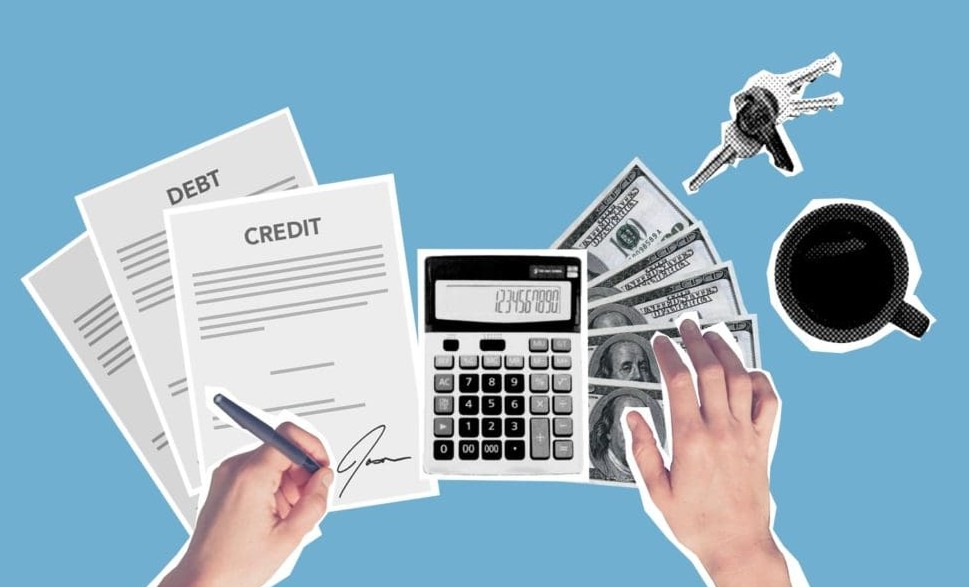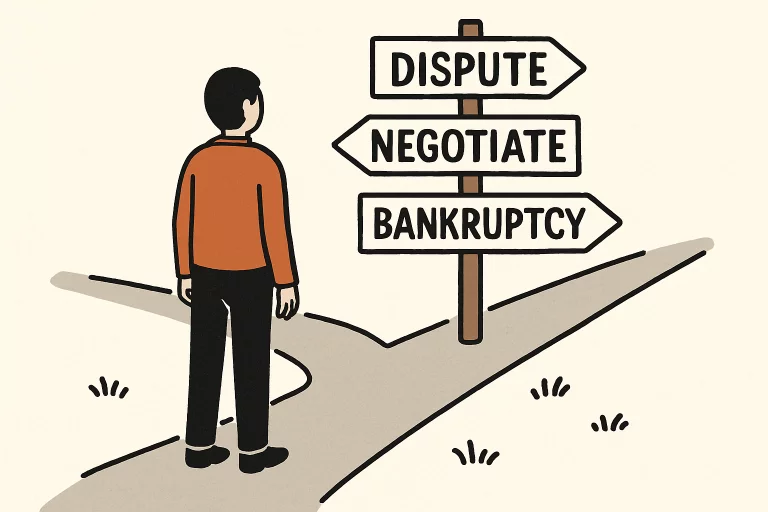
The Crossroads of Debt: When to Fight, When to Negotiate, and When to File
Key Takeaways
- Assess your financial situation to determine the best course of action.
- Understand the implications of disputing, negotiating, or filing for bankruptcy.
- Seek professional advice when necessary to make informed decisions.
Managing debt can be a complex process, with multiple paths and no clear path to the best solution. The decision to dispute a debt, negotiate a settlement, or file for bankruptcy can have unique consequences for your finances, credit score, and peace of mind. Reaching out for personalized, professional guidance can make a significant difference in your financial situation. By speaking to an experienced bankruptcy lawyer, you can gain insight into legal and economic tools, help you choose a solution that supports long-term stability, and weigh the impact of bankruptcy. Reliable professional counsel not only eases anxiety but also highlights options that may be missed if you go it alone. They ensure your best interests are prioritized at every step, and building a strategy with a trusted expert is a proven way to safeguard your assets and begin your journey back to financial security.
When to Contest a Debt
To ensure you’re only addressing legitimate debts, request written validation from the creditor or collection agency immediately. If you’re considering bankruptcy, consulting a bankruptcy lawyer Rockland can help guide you through the process. Under federal law, these organizations are required to provide proof that the debt is yours and that the amount is accurate. If they can’t, you may not be required to pay. The sooner you begin this process, the more likely you are to prevent unnecessary harm to your financial reputation and avoid further collection activities.
When to Negotiate a Settlement
For many, the reality isn’t that a debt is wrong, but that the full amount due is too much to pay at once. In these cases, negotiation is often the most practical path. Creditors would usually rather recover a portion of what’s owed than risk receiving nothing, so they may be surprisingly open to compromise, especially if you approach them proactively. Negotiating a settlement—whether that’s a reduced lump-sum payment or a structured arrangement—can significantly decrease both the burden on your monthly finances and the long-term damage to your credit score.

Steps to Successful Negotiation
- Reach Out Early: It’s in your best interest to initiate contact before the debt is sold to a collection agency or legal action is taken. Early communication can lead to more flexible terms and reduce unnecessary penalties or interest.
- Propose a Realistic Plan: Carefully review your budget to determine what payment you can reasonably make. Honest and transparent communication about your financial limitations can increase the creditor’s willingness to negotiate and demonstrate good faith on your part.
- Get Agreements in Writing: Never make assumptions or rely on verbal promises. A written settlement or payment agreement prevents confusion, provides clear documentation in case of future disputes, and ensures that the terms will be honored by all parties.
Resolving debts through negotiation, rather than ignoring them, can make a crucial difference in your financial recovery. Settlements will often appear on your credit report as “settled” rather than “unpaid,” which is far less damaging to your future borrowing capacity.
When to Consider Bankruptcy
Bankruptcy is often seen as a last resort for individuals with overwhelming financial obligations. Still, it can be a viable solution for those facing lawsuits, falling behind on payments, aggressive debt collectors, and a lack of income or non-exempt assets. Bankruptcy can serve as a legal reset button, enabling individuals to rebuild their financial lives without constant harassment from creditors and overwhelming bills. However, bankruptcy has significant long-term repercussions, which can last on a credit report for up to 10 years, making it difficult to secure new loans, credit cards, or housing and employment opportunities. Consulting with a qualified financial advisor or bankruptcy attorney can help determine if bankruptcy is the best option for you or if alternative solutions may be available.
Seeking Professional Assistance
Navigating debt can be complex and often requires professional assistance. Credit counselors and attorneys offer resources and experience to help individuals regain control. Credit counseling agencies help develop realistic spending plans, review existing debts, and arrange debt management plans. Legal professionals provide tailored advice on complex situations, such as defending a lawsuit or handling creditor harassment. Benefits of working with professionals include receiving tailored strategies, reducing stress, protecting consumer rights, and streamlining resolutions. If you feel stuck or uncertain, seek advice from seasoned experts. Early action can lead to more options and a manageable path out of debt. Working with a bankruptcy lawyer or financial advisor can help turn a challenge into a plan for a debt-free future.